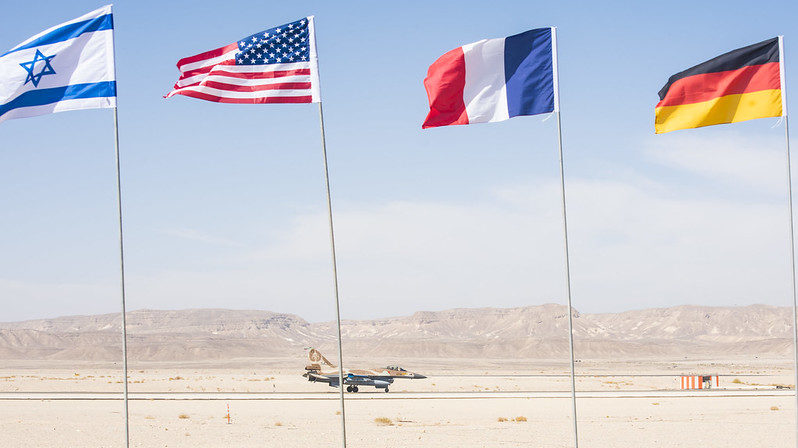Israel’s National Security Doctrine: From Ambiguity to Openness
Al-Ittihad, UAE, October 23
At the present time, Israel is emerging from a state of military and strategic ambiguity to a state of publicity and clarity. After many decades in which it refused to acknowledge its possession of nuclear weapons, the Israeli government is pursuing a more open approach meant to deter its enemies. This is perhaps nowhere clearer than in Israel’s decision to host the most advanced international air training in the world, Blue Flag, at its Ovda Air Force Base, with the participation of seven different countries. The official aim of the exercise is to strengthen strategic cooperation between participating countries, develop expertise in integrating fifth-generation fighter jets into their operations, and practice involvement in multiple theaters of operation. It is clear that Israel – in the face of new changes in the Middle East, the conclusion of its peace agreements with Gulf states and the absence of real regional risks with the exception of the Iranian threat – is realigning itself strategically. For many years, Israel refused to participate in collective security agreements. Israeli soldiers weren’t even allowed to visit the naval vessels of NATO states. But things have changed. For years, Israel allowed the establishment of an American military base in its territories and even accepted its inclusion in the US Central Command alongside Arab countries. Simply put, the Israeli security establishment seems to have subscribed to the view that the only way to confront its enemies is through regional partnerships. From an approach of relying on no one but itself, Israel is slowly but surely adopting a multilateral regional approach that includes other Mediterranean and Middle Eastern countries. For this reason, it is unsurprising that the Israeli military called for the adoption of a new national security strategy that takes into account the magnitude of the huge changes that have occurred in the region in recent years. Israel wants to emphasize the risks and perils associated with daring to target it. Thus, it is expected that Israel will witness a controversy between those who want to achieve the gains of openness to the region by building clearer and more transparent relations with Arab countries and those who subscribe to a more “isolationist” approach when it comes to national security. Either way, Israel is in the process of revising its national security doctrine with the support of the United States and friendly countries in the Mediterranean, the Gulf and beyond. This effort will likely continue to accelerate in years to come. – Tarek Fahemy (translated by Asaf Zilberfarb)


